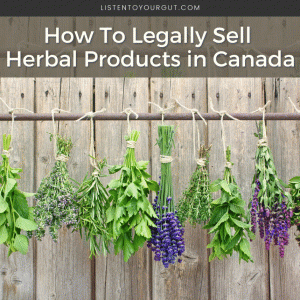A friend of mine makes these incredible herbal ointments and sells them at local farmers’ markets or to her own customers as part of her horse therapeutic care program. So I wondered if I could wear them in my Canadian LTYG shoppe and offer them to my readers.
Well, I asked my friend Isabel who oversees all compliance issues with our shoppers in all 4 countries and oy vey – it’s a process to “officially” sell any type of herbal product in Canada!
First, you need to start with GMP practices to get a site license:
“To be legally sold in Canada, all natural health products must be licensed and the Canadian sites that manufacture, package, label and import these products must have site licenses.
In order to obtain product and site licenses, specific labeling and packaging requirements must be met, good manufacturing practices must be followed, and adequate evidence of safety and efficacy must be provided. “
Site licensing
All Canadian manufacturers, packagers, labelers and importers of natural health products are required to have site licenses. To obtain a license, sites must maintain proper sales records, have appropriate procedures for product recalls and the handling, storage and delivery of their products, and demonstrate that they meet good manufacturing practice requirements.
What is a Natural Health Product (NHP)?
But wait – you are just making a couple of pots of herbal ointment to be applied to the skin, you are not making pills or anything to be ingested. People have been making herbal ointments for thousands of years. How can this be something that requires government regulation? I just quote straight from the government website to answer that:
Natural Health Products (NHPs) are naturally occurring substances that are used to restore or maintain health. They are often made from plants, but can also be made from animals, microorganisms, and marine sources. They come in a variety of forms such as tablets, capsules, tinctures, solutions, creams, ointments, and drops.
Natural health products, often referred to as “complementary” or “alternative” medicines, include:
- Vitamins and minerals
- herbal remedies
- homeopathic medicines
- traditional medicine such as traditional Chinese and Ayurvedic (East Indian) medicine
- Probiotics
- other products like amino acids and essential fatty acids
Many everyday products such as certain toothpastes, antiperspirants, shampoos, face products, and mouthwashes are also classified as natural health products in Canada.
Here is another link to help you get started with frequently asked questions about this venture.
The Standard Operating Procedures (SOPs) required for GMP compliance are hundreds of pages long, so this would be a huge effort.
Conclusion: We cannot sell any of their products in our shop if they do not have an NPN (Natural Product Number) and in order to receive an NPN it has to go through the entire process described above.
Well, all I can say is thank goodness we don’t have Health Canada agents patrolling farmers markets and craft fairs! I’ve noticed a number of people selling locally made herbal products on Facebook and sometimes even on their own website. If you are a small shop assistant, Health Canada may not take care of you.
Hope this helps you after you’ve been looking for this information. My friend couldn’t find any clear information beforehand, so I’ve compiled this post for other people who may need the same answers.
![]()
Jini Patel Thompson is an internationally recognized expert in naturopathic treatments for digestive diseases. She healed herself from the widespread Crohn’s disease and has been drug and surgery free for over 20 years. Appeared on numerous podcast, television and radio shows in the US, UK, Canada and Australia, Jini gives people hope and visions on how to cure colitis, Crohn’s disease, diverticulitis and irritable bowel syndrome (IBS) in all natural methods. Her books on natural digestive disease cures have been sold in over 80 countries around the world.


